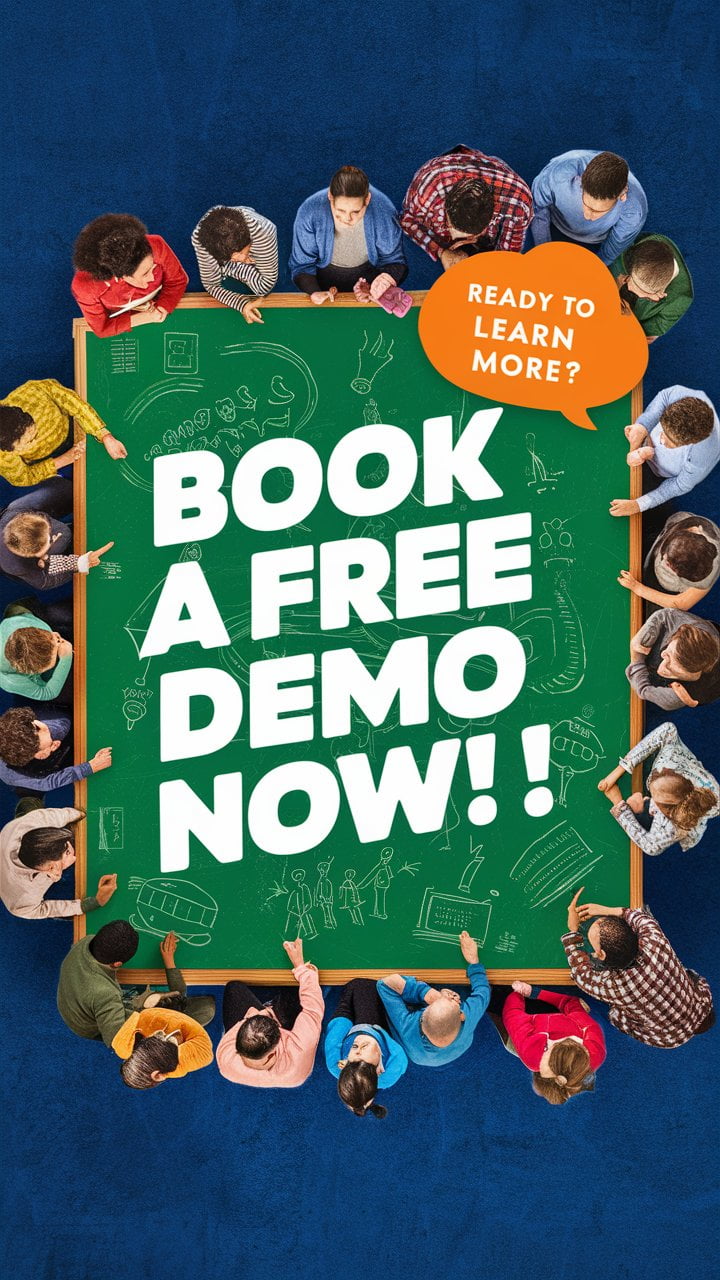- Introduction to AP Precalculus
- Criteria for Selecting the Best Books
-
Top 10 Books for AP Precalculus
- 1. "Precalculus: Mathematics for Calculus" by James Stewart, Lothar Redlin, and Saleem Watson
- 2. "Precalculus" by Michael Sullivan
- 3. "Precalculus" by Ron Larson
- 4. "Precalculus: An Investigation of Functions" by David Lippman and Melonie Rasmussen (Free Resource)
- 5. Tutoringmaphy - Free AP Precalculus worksheets
- 6. "Barron's AP Precalculus" by David Bock M.S. and Dennis Donovan M.S.
- 7. "Schaum's Outline of Precalculus" by Fred Safier
- 8. "Precalculus: A Self-Teaching Guide" by Steve Slavin and Ginny Crisonino
- 9. "Precalculus Demystified" by Rhonda Huettenmueller
- 10. "Precalculus Workbook: Essential Precalculus Skills Practice" by Chris McMullen
- Additional Resources and Tools for AP Precalculus
- Tips for Studying AP Precalculus
- Conclusion
- Frequently Asked Questions (FAQs)
Introduction to AP Precalculus
AP Precalculus is as an important gateway for students aiming to excel in higher-level mathematics courses, including AP Calculus. This course covers a wide range of topics that form the foundation for calculus, such as functions, complex numbers, trigonometry, and analytical geometry. Choosing the right study material is essential for mastering these concepts and performing well on the exam. You can also book an experienced and affordable private online AP Precalculus tutor.
Criteria for Selecting the Best Books
When selecting the best books for AP Precalculus, consider the following criteria:
- Extensive Coverage of Topics : The book should cover all topics outlined in the AP Precalculus curriculum.
- Practice Problems and Solutions : Adequate practice problems with detailed solutions help enhance learning.
- Clarity and Readability : The material should be presented clearly and be easy to understand.
- Supplemental Online Resources : Books with access to online content, videos, and additional exercises can provide extra help.
Top 10 Books for AP Precalculus
1. “Precalculus: Mathematics for Calculus” by James Stewart, Lothar Redlin, and Saleem Watson
Key Features: This book is renowned for its thorough coverage of precalculus topics, detailed examples, and rigorous approach. It provides a solid foundation in the principles needed for calculus.
Pros and Cons:
Pros : Comprehensive and well-organized content, excellent practice problems.
Cons : Can be challenging for students without a strong math background.
2. “Precalculus” by Michael Sullivan
Key Features :Sullivan’s “Precalculus” is known for its structured approach and clarity. The book offers numerous practice problems and real-world applications to help students grasp complex concepts.
Pros and Cons :
Pros : Clear explanations, practical applications, numerous exercises.
Cons : Some students may find the pace slow.
3. “Precalculus” by Ron Larson
Key Features : Larson’s book is a favorite among students for its engaging writing style and practical approach to problem-solving. It includes a variety of exercises that fulfill to different learning styles.
Pros and Cons :
Pros : Engaging content, diverse problem sets, interactive online resources.
Cons : May not go deeply into some advanced topics.
4. “Precalculus: An Investigation of Functions” by David Lippman and Melonie Rasmussen (Free Resource)
Key Features : This free textbook offers a comprehensive exploration of functions and their applications, making it an excellent resource for students on a budget.
Pros and Cons :
Pros : Free, accessible, thorough coverage of functions.
Cons : Lacks some of the supplemental resources found in paid textbooks.
5. Tutoringmaphy – Free AP Precalculus worksheets
Key Features: Our collection of free downloadable AP Precalculus worksheets with solutions are specifically for AP Precalculus students. The videos soltions cover a wide range of topics and provide explanations that can make complex concepts easier to understand.
Pros and Cons:
Pros : Free, engaging downloadable content, accessible anytime.
Cons : Video format may not suit all learning styles, requires internet access.

6. “Barron’s AP Precalculus” by David Bock M.S. and Dennis Donovan M.S.
Key Features : Barron’s AP Precalculus book is designed specifically for the AP course, providing targeted practice and review. It includes practice exams and strategies for tackling the AP exam.
Pros and Cons :
Pros : AP-specific content, practice exams, test-taking strategies.
Cons : Limited in-depth explanations of some concepts.
7. “Schaum’s Outline of Precalculus” by Fred Safier
Key Features : Schaum’s Outline is well-known for its concise explanations and extensive problem sets. It’s an excellent resource for additional practice and quick review.
Pros and Cons :
Pros : Clear, concise explanations, large number of practice problems.
Cons : Not as comprehensive in theory as some other textbooks.
8. “Precalculus: A Self-Teaching Guide” by Steve Slavin and Ginny Crisonino
Key Features : This self-teaching guide is perfect for students who prefer to learn independently. It breaks down complex topics into manageable sections with self-tests to reinforce learning.
Pros and Cons :
Pros : Self-paced, easy-to-understand format, self-tests.
Cons : Lacks the depth of a traditional textbook.
9. “Precalculus Demystified” by Rhonda Huettenmueller
Key Features : “Precalculus Demystified” aims to simplify complex concepts, making them more approachable for students. It’s a great supplement to more traditional textbooks.
Pros and Cons :
Pros : Simplified explanations, step-by-step solutions.
Cons : Not as rigorous as other textbooks, more of a supplementary resource.
10. “Precalculus Workbook: Essential Precalculus Skills Practice” by Chris McMullen
Key Features : This workbook focuses on honing precalculus skills through extensive practice. It’s a great resource for students looking to strengthen their problem-solving abilities.
Pros and Cons :
Pros : Focused practice, skill-building exercises.
Cons : Limited theoretical explanations, primarily practice-focused.
Additional Resources and Tools for AP Precalculus
In addition to the textbooks listed above, several other resources can enhance your study experience:
- Online Tutorials and Video Lectures : Channels like Tutoringmaphy and Khan Academy offer excellent video tutorials covering various precalculus topics.
- Interactive Websites and Apps : Platforms like Wolfram Alpha and GeoGebra provide interactive tools for visualizing and solving precalculus problems.
Tips for Studying AP Precalculus
- Creating a Study Schedule : Establish a regular study schedule to ensure consistent progress.
- Utilizing Practice Tests : Take practice tests to familiarize yourself with the exam format and identify areas needing improvement.
- Joining Study Groups : Collaborate with peers to discuss difficult concepts and solve problems together.
- Seeking Help When Needed : Don’t hesitate to ask for help from teachers, tutors, or online forums if you’re struggling with certain topics.
AP Precalculus has 4 units in total. Checkout further details on Unit 1, Unit 2, Unit 3 and Unit 4
Conclusion
In summary, the right study materials can make a significant difference in your understanding and performance in AP Precalculus. The books and resources listed above offer a range of options to suit different learning styles and needs. Remember to leverage your strengths, stay consistent with your studies, and make the most of the resources available to you. Good luck!
Frequently Asked Questions (FAQs)
Q. What are some good books for AP Precalculus?
Here are some of the best books that cater to different learning styles and needs:
- “Precalculus: Mathematics for Calculus” by James Stewart, Lothar Redlin, and Saleem Watson
- “Precalculus” by Michael Sullivan
- “Precalculus” by Ron Larson
- “Barron’s AP Precalculus” by David Bock M.S. and Dennis Donovan M.S.
Q. What are some free textbooks in PDF for AP Precalculus?
Free textbooks can be a valuable resource for students looking to save on costs while still accessing high-quality educational material. Here are some excellent free textbooks available in PDF format for AP Precalculus:
1. “Precalculus: Mathematics for Calculus” by James Stewart, Lothar Redlin, and Saleem Watson
This textbook is highly regarded for its rigorous approach and thorough coverage of precalculus topics. The book provides detailed examples and a variety of practice problems, making it an excellent choice for students who aim to excel in AP Precalculus and prepare for calculus.
Key Features :
- Comprehensive and well-organized content.
- Excellent practice problems.
- Free PDF link: Download here
2. “Schaum’s Outline of Precalculus” by Fred Safier
Schaum’s Outline is well-known for its concise explanations and extensive problem sets. This book is an excellent resource for additional practice and quick review, making it a great supplement to other textbooks.
Key Features :
- Clear, concise explanations.
- A large number of practice problems.
- Free PDF link: Download here
3. “Precalculus” by Michael Sullivan
Sullivan’s “Precalculus” is known for its structured approach and clarity. It includes numerous real-world applications and exercises that help students understand and apply complex concepts effectively.
Key Features :
- Clear explanations and practical applications.
- Numerous exercises to reinforce learning.
- Free PDF link: Download here



